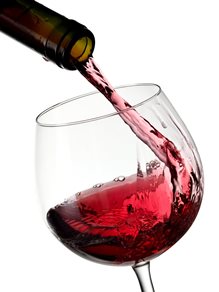 Binge drinking, or excessive alcohol abuse, is a surprising issue for seniors that costs lives and big healthcare dollars. The National Institute on Alcohol Abuse and Alcoholism defines binge drinking as a pattern of drinking that brings a person’s blood alcohol concentration to .08 grams percent or above. This usually happens when men have 5 or more drinks, and when have 4 or more, in about 2 hours.
Binge drinking, or excessive alcohol abuse, is a surprising issue for seniors that costs lives and big healthcare dollars. The National Institute on Alcohol Abuse and Alcoholism defines binge drinking as a pattern of drinking that brings a person’s blood alcohol concentration to .08 grams percent or above. This usually happens when men have 5 or more drinks, and when have 4 or more, in about 2 hours.
Drinking too much, including binge drinking, cost the United States $249 billion in 2010, or $2.05 a drink, from losses in productivity, health care, crime, and other expenses. Binge drinking was responsible for 77% of these costs, or $191 billion. (source)
It is important to note that most people who binge drink do not have dependency on alcohol. Signs of alcohol addiction include: a strong craving for alcohol, continued use despite psychological, physical, or interpersonal issues, and the inability to limit drinking.
Here is where it gets interesting and relevant for aging professions. According to the CDC, the most frequent abusers are adults aged 65 and above, drinking an average of five to six times a month. Young people, from ages 18-34, are reported as the most common binge-drinkers. The difference is in the frequency of the drinking versus the number of drinkers, if that seems unclear.
For the older adults who drink excessively, there is an increased risk for complications if they take certain medications and have health problems, such as:
- Increased sensitivity to alcohol: meaning that they feel the effects of alcohol more quickly than expected or when younger and puts them at risk for motor vehicle accidents, falls, and other unintentional injuries.
- Worsening of certain health conditions, including: diabetes, high blood pressure, heart failure, liver failure, osteoporosis, memory problems, and mood disorders.
- Bad interactions with medications: some medications are dangerous or fatal when mixed with alcohol. Aspirin, cold medicine, and sleeping pills are a few worth mentioning.
Guidelines for adults over age 65 who are healthy and do not take medications should not have more than: 3 drinks on a given day or 7 drinks in a week
Concerned about a senior’s drinking? Use CAGE questionnaire to screen for dependency and if additional intervention is necessary.

1 comment
It’s hard to say